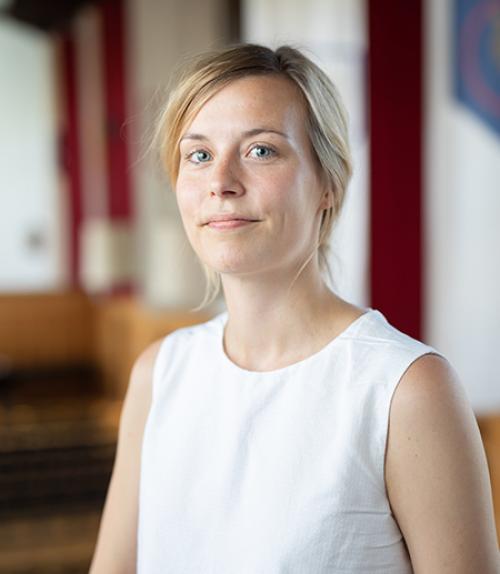Two government graduate students — one studying the rise of populist radical right parties and the other the politics of domestic violence — have recently been honored with fellowships and other awards for their research.
Doctoral student Pauliina Patana won the Social Science Research Council Mellon International Dissertation Research Fellowship. She has also been awarded multiple fellowships from the Thanks to Scandinavia Foundation, the Chateaubriand Fellowship from the Embassy of France in the United States and the George Kahin Prize for beginning dissertation work of great promise in the area of international relations and area studies. She also recently published the article "Changes in Local Context and Electoral Support for the Populist Radical Right: Evidence from Finland" in Party Politics.
Doctoral student Mariel Barnes was named a predoctoral fellow at the Berlin Program for Advanced German and European Studies at the Freie Universität Berlin for the 2019-20 academic year. She also won a Doctoral Dissertation Research Improvement Grant from the National Science Foundation, a fellowship from the Deutscher Akademischer Austauschdienst (DAAD), a Humane Studies Fellowship from the Institute for Humane Studies at George Mason University, an Adam Smith Research Fellowship from the Mercatus Center at George Mason University and research travel grants from Cornell’s graduate school and the Einaudi Center. She also has a forthcoming journal article in Comparative Politics, "Divining Disposition: The Role of Elite Beliefs and Gender Narratives in Women's Suffrage"
Patana is studying why radical right-wing parties do particularly well in geographic areas that aren’t affected by their electorates’ key concerns, such as immigration, post-industrial economic decline or transnationalism. At the same time, these parties aren’t as popular in cities, towns and villages where these issues are more salient.
“In 2011, seemingly out of nowhere, the populist Finns party won 19% of the vote share in the national election, becoming the third largest party,” said Patana, who is from Finland. “I was concerned and just couldn’t wrap my head around the fact that all of the sudden there was a huge increase in demand for this party that primarily capitalizes on an anti-immigration agenda, especially in a country like Finland that has very few immigrants relative to other European countries. That is how I initially became interested in researching the topic.”
Patana focuses her work on European politics, social welfare politics, political economy and political behavior. Her dissertation focuses on Finland and France.
Along with collecting data and reviewing relevant research, news and debates about the rise of right-wing parties, Patana used most of her award funding to spend 18 months on the ground in Finland and France, talking to people about their political views.
“My dissertation would have been very different if I hadn’t been able to talk to people at the local level,” she said. “I have case studies from each region I visited and I am now doing country level analyses to see if the key messages I learned from the interviews are holding true at the national level.”
The key theoretical argument she’s advancing is that radical right parties do particularly well among people who are residentially constrained and frustrated by their inability to relocate to areas that offer more economic opportunities and services, creating resentment and feelings of being left behind and ignored.
Mariel Barnes in Venice, Italy.Barnes is studying the role of the state in everyday violence against women. She said her interest was piqued by a case in her home country of Australia, where a husband murdered his wife and three children in their beds before turning the gun on himself.
“Although violence like this is quite common, this instance really stuck with me, particularly because of how uncritical the media was of the husband,” she said.
Using a survey conducted by the European Union on violence against women, along with other data, Barnes found that despite many improvements in gender equality, physical and sexual violence against women in Western Europe remains high. Her dissertation focuses on two paired comparisons – Germany and Austria, and the UK and Ireland.
The first part of her work pairs the survey data with data on welfare state spending, while the second part focuses on an analysis of state spending and Barnes’ interviews with women who have experienced violence, support workers, women’s organizations and national governments. She also volunteered with the organization Victim Support Scotland (VSS) for eight months.
“Through volunteering with VSS, I was able to gain extensive insights into the mechanisms of violence against women and the state’s contribution to the phenomenon,” she said.
While her research could be interpreted to show that welfare state spending exacerbates violence against women, Barnes said this is an “overly simplistic interpretation.”
Instead, she encourages governments to “think critically about the best paths for the welfare state to help women rather than assuming every mechanism is positive.”
“Having worked with survivors of violence and seen devastating impact it has on women; it is extremely important to me that my research has an impact beyond academia,” Barnes said. “I hope that my dissertation calls more attention to the epidemic of violence against women that is present even in advanced industrialized democracies like those found in Europe and North America.”





